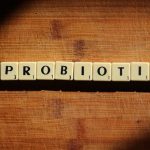Your diet can affect your reproductive health. A well-balanced diet full of the nutrients needed for hormone balance and sperm production is a great way to support male reproductive health in the short term.
The reproductive organs of males are constantly generating new sperm, and this activity can last anywhere from 60 to 80 days.
If you want to improve your chances of conceiving, you should eat healthy foods and get the right nutrients in the 2-3 months before you try to get pregnant.
Male Infertility
We need to understand what infertility is before we can get to the right diet for fertility.
The ability of men and women to reproduce without medical assistance is fertility. Infertility is the inability to become pregnant after trying for a baby over a period of time.
If a man cannot make his female partner pregnant naturally, it is called male infertility. Infertility is largely dependent on the quantity of a male’s sperm cells and semen quality.
In approximately half of the cases that are seen, the males are the only ones with fertility issues. In the past forty years, the quality of human semen has decreased by more than fifty percent.
1 out of 7 couples is infertile. This means conception has not been accomplished after 1 year of unprotected sex.
The internet is full of claims that laptop heat is causing sperm count to drop. Some articles even blame the heat from cell phones.
There are several scientific factors that can cause infertility, including overall health and fitness levels, genetics, diseases, illness, injury, lifestyle choices, dietary contaminants and diet. Obesity is also linked to lower sperm counts.
A sperm’s journey to fertilization is a long and complicated one. Making sure you have healthy sperm cells and semen quality is important for fertility. There is evidence that certain foods can boost sperm count and increase fertility in men.
Good Food for Healthy Sperm
To promote male reproductive health through diet, one should focus on both the overall balance of the diet as well as the specific nutrients needed for hormone balance and sperm production.
The Mediterranean diet has been linked with improved sperm number, sperm quality, and increased chances of conceiving. You can follow the principles of a Mediterranean diet no matter where you live in the world.
A Mediterranean diet is based on eating a lot of fresh vegetables and fruit (eating at least 7 servings of them each day), as well as whole grains, beans, lentils, quality protein from sources like meat, fish, and seafood, and good fats from things like extra virgin olive oil and nuts.
Making dietary changes towards a more Mediterranean eating pattern is key to preparing the body for conception, as it can help to boost sperm number and quality.
To make your diet more Mediterranean aim to:
-
Eat more vegetables with each main meal so that half your plate is full.
-
To have a healthier diet, consume at least one serving of beans or lentils every day. If you want a healthier snack, keep hummus in your refrigerator.
-
Use 1 tablespoon of extra virgin olive oil every day, either by drizzling it over vegetables or using it in a salad.
-
Instead of eating chips or other refined snacks, have some fresh fruit or unsalted nuts instead. Having a handful of nuts every day can be beneficial for your health.
We should all fill our plates mostly with vegetables and fruits–especially if we’re struggling with infertility.
A study by the University Of Chicago found that men who ate more fruits and vegetables – particularly plant proteins like beans and legumes, along with leafy greens – had higher sperm concentrations than men who ate less fruits and vegetables.
Up Your Antioxidants
One positive aspect of the Mediterranean diet for male fertility is the abundance of antioxidants.
Boosting antioxidant levels in your diet may be the most important dietary change you can make to improve male fertility. All plant foods contain antioxidants, and our bodies can produce antioxidants using certain nutrients, such as selenium and zinc.
Antioxidants are crucially important in male fertility because they protect sperm cells from damage, ensuring the quality of sperm cells and the quality of their DNA.
The main purpose of sperm is to deliver DNA to the egg for fertilization and reproduction. Sperm cells are often referred to as DNA with a tail.
Free radicals can damage sperm cells and the DNA inside them. Sperm with damaged DNA has a lower chance of causing a pregnancy, and a higher chance of leading to amiscarriage.
If you want to protect your cells from free radical damage, you should make sure to get plenty of antioxidants in your diet.
Ways to up your antioxidant intake:
-
Eating a wide variety of fruits and vegetables, each with their own unique color, is a great way to ensure that you’re getting a good mix of antioxidants. If you want to consume a variety of antioxidants, you should eat a variety of different colored foods.
-
Make your food more exciting by adding some spices and herbs. Some of the most antioxidant-rich spices and herbs include turmeric, ginger, cumin, rosemary, and oregano. You should try cooking with spices or herbs once a day.
-
Instead of your usual chocolate bar or biscuit, have a few squares of dark chocolate. Cocoa beans are a rich source of antioxidants, making dark chocolate a great way to incorporate these nutrients into your diet.
-
You can either dress your vegetables and salads with butter or extra virgin olive oil. The absorption of antioxidants is increased when consumed with a fat source.
-
To produce antioxidants, it is essential to include quality protein sources in your diet, such as grass-fed red meat, fish and shellfish, at least three times a week.
-
You should try to eat at least two servings of mushrooms, especially shiitake mushrooms, every week. This is because mushrooms are packed full of the antioxidant glutathione.
Vitamins and Minerals
The quality of a sperm cell’s DNA is crucial to successful conception and a healthy pregnancy.
Vitamin B12 & Folate
Vitamin B12 and folate contribute to DNA synthesis. A lack of either of these nutrients can lower sperm DNA quality. Eating a lot of vegetables, especially green leafy vegetables, will help you get enough folate. Vitamin B12 is only found in animal products, so people who don’t eat animal products are at risk of deficiency. You can find out if you have low levels of B12 and folate with a blood test.
Vitamin D
Vitamin D deficiency is especially common in Northern Europe. Men who are deficient in vitamin D have lower quality sperm compared to men who have better vitamin D stores. If you are hoping to conceive, making sure you are not deficient in vitamin D is an important step to take.
Zinc & Selenium
Minerals zinc and selenium play a role in sperm production (spermatogenesis) and the body’s production of antioxidants. The antioxidant glutathione, which is produced by Selenium, is most likely the most important one when it comes to protecting sperm health. Glutathione is an important antioxidant for the body. It helps to ensure sperm quality and can protect sperm from damage during assisted conception processes, such as IVF. Glutathione helps sperm move better so they can fertilize an egg.
Vitamins C & E
Increasing your intake of foods rich in vitamins C and E has been shown to improve sperm quality.
According to the table, the best food sources of key nutrients are soybeans, oysters, pumpkin seeds, and salmon. However, it is advisable to use a high quality multivitamin supplement specifically designed to support male fertility in order to ensure that enough key nutrients are consumed to optimize sperm quality and quantity.
Antioxidants in Vitamin C help fight against oxidative stress. Oxidative stress is a state in which the body’s natural antioxidant defenses are overwhelmed. This can occur due to age, an unhealthy lifestyle, or exposure to pollution. Oxidative stress can impact male fertility. Oxidative stress is when there is an imbalance of free radicals and antioxidants in the body, and this can cause damage to cells.
Eating foods that are high in Vitamin C, or taking a Vitamin C supplement, can improve sperm count and semen quality. You should add citrus fruits, asparagus and pomegranates to your diet.
Have More Ashwagandha
Ashwagandha is an Indian superfood, it helps increase testosterone levels and boosts sperm quality and fertility in men.
Several studies have found that taking Ashwagandha root can increase sperm concentration. The medicinal herb that has anti-inflammatory properties is also known to help lower the levels of cortisol in the body, which is the stress hormone.
READ MORE: Ashwagandha Health Benefits
Have More Ginger
If you have low sperm count or low testosterone levels, ginger can help improve these levels. Ginger can be used in both food and drink recipes as it is a versatile herb. Ginger boosts testosterone, which may boost fertility. You can also have ginger powder (saunth).
Have More Zinc-Rich Foods
Zinc levels that are too low have been linked with a decrease in testosterone levels, poor sperm quality, and an increased risk of male infertility. Zinc is present in meat, fish, eggs and shellfish.
Zinc helps the immune system, helps the metabolism function, and is a key nutrient in all stages of wound healing.
READ MORE: Health Benefits Of Zinc
Avoid Processed Meat
All of the following meats are high in sodium, nitrates, and other unhealthy substances: sausages, bacon, salami, and cold cuts. Processed meat can decrease sperm count and alter sperm motility, according to studies.
The connection between these foods and negative health effects is unclear, but it is generally agreed that it is best to avoid them.
Avoid Trans Fats
Trans fats should be avoided for heart health, weight gain and overall well-being. And the same goes for sperm count. A study made in Spain in 2011 showed that if a person ate more trans fat, their sperm count would be lower.
Avoid Excess Soy
Soy contains the hormone estrogen which can reduce sperm function if consumed in large quantities. Soy products contain phytoestrogens, which are plant-based estrogen-like compounds. The study found that men who ate the most soy had 41 million fewer sperm per milliliter than men who ate the least soy. A study of 99 men from fertility clinics in Boston showed that too much soy could decrease sperm concentration by 41 million sperm per milliliter.
Avoid High-Fat Dairy Products
A diet rich in calcium may not be effective for individuals experiencing fertility issues.
The Rochester Young Men’s Study showed that consuming high-fat dairy products, like whole milk, cheese, and cream, can decrease sperm motility and alter sperm shape in men aged 18-22.
Avoid Alcohol
You should avoid drinking alcohol if you are trying to get pregnant since it can lower fertility. It is advisable for men to consume no more than 10 alcoholic beverages per week, according to medical professionals. Don’t drink all 10 drinks in one night or weekend. Spread them out over time.
The CDC recommends that men have no more than 2 alcohol drinks per day.
Avoid Foods Contaminated With BPA
BPA is a hormone disruptor which means that it can cause problems with the way your hormones function. The BPA in plastics and food packaging can disrupt hormones, causing problems with their normal function. The animals that live in water bodies contaminated with plastic also eat the plastic, which can be found in their meat and fish.
It harms our food supply by leaching into it through the packaging or water supply. It is important to be careful about the cooking utensils you use and the type of packaged food you buy. It is better to eat whole foods.
Infertility & Nutrition
We understand fertility issues can be a sensitive topic. Coupling OB-GYN trips and fertility specialist visits with a good diet can help you on your journey to parenthood.
Fertility and sperm count in men can be affected by nutrition. The right diet for fertility can help. Although it is often overlooked, diet can have a significant influence on fertility and the ability to conceive.
There are specific nutrients that the male body needs in order to produce hormones, sperm, and antioxidants. If you are trying to improve your fertility, it is essential to make sure you are getting enough of these nutrients. You should make sure you are getting enough of the key nutrients.
Diet impacts fertility whether you are looking to conceive naturally or through IVF.









